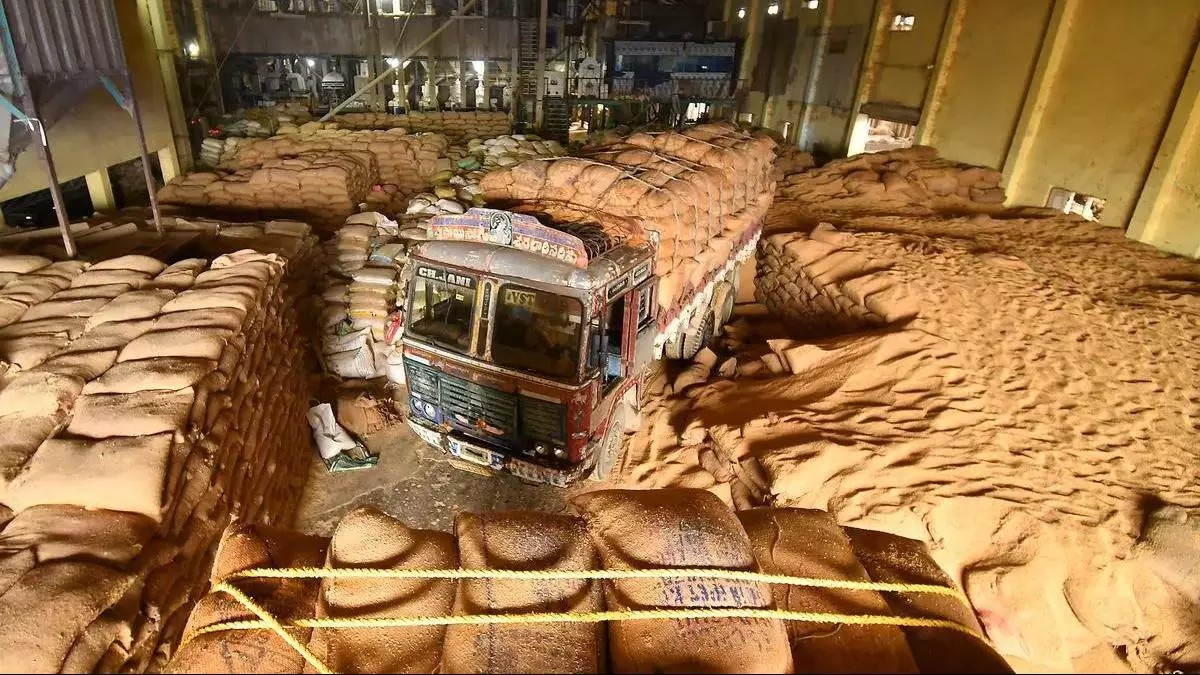Peace clause not enough, permanent solution to MSP limit at WTO a must: Farmer groups
Farmers’ groups have urged the Centre to insist on a permanent solution on food security at the WTO’s 13th Ministerial Conference (MC13) as the country’s use of the peace clause, to exceed prescribed MSP subsidy limits, has faced harsh questioning at the WTO, leaving it vulnerable to disputes.
Moreover, the peace clause, which was negotiated as a temporary solution at the Bali Ministerial Conference in 2013, has restricted use as it applies only to programmes existing prior to 2013 and also has onerous conditions attached, they argue.
“Attempts by agricultural export powerhouses to first allow only an onerous peace clause and then challenge the application of the peace clause highlight the need for a permanent solution. Amending the Agreement on Agriculture (allowing subsidies for food security under the Green Box without any limit) would provide greater legal certainty and address the limitations of the current clause,” the Indian Coordination Committee of Farmers Movements (ICCFM) said in a letter addressed to Commerce and Industry Minister Piyush Goyal.
ICCFM is a network of farmers’ organisations, comprising farmers movements from Uttar Pradesh, Haryana, Punjab, Himachal Pradesh, Madhya Pradesh, Karnataka, Tamil Nadu, Kerala, and Maharashtra.
Also read: MSP should be seen separately from public procurement
Goyal will represent India at WTO MC13 in Abu Dhabi where many developed members, led by the US, want to further postpone a permanent solution to public stockholding (PSH).
The existing Agreement on Agriculture places a cap on public stockholding programmes of developing nations, including minimum support price (MSP), at 10 per cent of the value of production of particular crops.
This limits the ability of developing countries to fund food security programmes for millions of its poor and vulnerable population.
At the Bali MC in 2013, a peace clause which insulates developing nations against legal action in case they breach subsidy limits, was extended. But it was riddled with numerous conditions.
“The peace clause has burdensome notification requirements and restricts applicability to programs existing before 2013 and only for traditional staples. This significantly limits India’s policy options for farmer protection and leaves it vulnerable to disputes. Similar concerns exist for other developing countries,” the letter noted.
India has invoked the ‘peace clause’ twice for exceeding MSP limits for rice but faced relentless questioning at the WTO by other members on meeting of the conditionalities.
Also read: Why legal guarantee for MSP will be difficult to implement
The farmers’ group advocated a permanent solution on PSH for food security that allows the government to procure staples from their producers at the MSP to maintain essential food grain buffer stocks, ensuring food availability and price stability for the country’s vast population.
“We urge you to resist any pressure to weaken the PSH mechanism and fight for a permanent solution that considers the needs of developing countries like India to ensure food security for millions of its needy people,” the letter pointed out.
